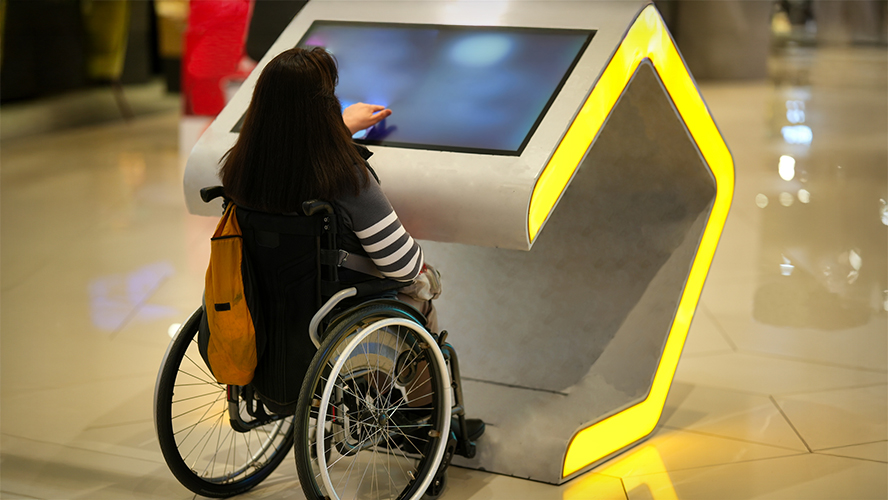
A new study from the KITE Research Institute explored the barriers faced by Canadians with disabilities when using wayfinding technology and provided key insights into improving accessibility and usability.
Wayfinding technologies, such as GPS applications, wearable devices, and digital information booths, help enhance navigation efficiency, safety, and accessibility. However, for people with disabilities, significant barriers to use exist, including high costs and interaction challenges. A better understanding of these barriers would lead to more inclusive designs and equitable access.
Researchers surveyed over 200 Canadians with varying disabilities, including those with mobility, visual, hearing, memory, and learning disabilities, to better understand their experiences using different types of wayfinding technology. Participants were asked about their use of wayfinding mobile applications, websites or web applications, wearable devices, assistive devices, and digital or interactive public devices.
Key barriers identified included the high cost of using and maintaining the technology, reliance on internet connectivity, and technology literacy demands beyond the average user’s knowledge. Participants also identified interaction challenges, such as difficulties with touchscreens or voice controls, and physical barriers surrounding public wayfinding tools.
By highlighting these barriers, this study emphasizes the need to include wayfinding technologies in national accessibility standards and consider the perspectives of diverse users in their design. As these technologies become more inclusive, they hold the potential to transform lives and promote more equitable access to public spaces and opportunities.
Esther Leung is the co-first author of the study and a former Master’s student in Dr. Alison Novak’s Lab.
Ealu Li is a co-first author of the study and a former Master’s student in Dr. Alison Novak’s Lab.
Dr. Alison Novak is the senior author of the study and a Senior Scientist at the KITE Research Institute. At the University of Toronto, Dr. Novak is a Faculty Member of the Rehabilitation Sciences Institute and an Associate Professor in the Department of Occupational Science & Occupational Therapy.
This work was supported by UHN Foundation and Accessibility Standards Canada.
#Leung E, #Li E, Primucci M, Edwards T, Houston D, Levine IC, Campos JL, Dutta T, Novak AC. Toward a better understanding of barriers to wayfinding technology use for people with disabilities. Assist Technol. 2024 Nov 13:1-8. doi: 10.1080/10400435.2024.2423608.
#Shared first authorship




